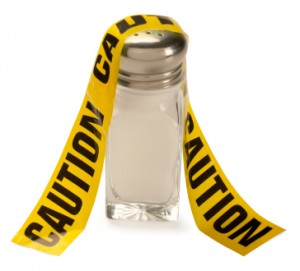Personal Salt Index
For years, I’ve worried about my mom. She puts salt on everything, even pizza. I remind her of what we’ve all heard 1,000 times: Too much salt increases your blood pressure, which increases your risk of strokes and heart disease. And she rolls her eyes and tells me her blood pressure is low, and her dad also ate lots of salt and had low blood pressure.

I might have to let this one go. New research from UVA shows that each person has a “personal salt index” and many people don’t need to worry about their daily salt consumption. In fact, researchers developed a test to determine who should consume more salt.
Salt Resistant or Salt Sensitive
About 25 percent of people are sensitive to salt, meaning it increases their risk for strokes, heart attacks and kidney failure, says Robin Felder, PhD. “An individual’s response to salt cannot be measured in a doctor’s office. Therefore, we developed a simple test to help the medical community determine an individual’s ability to tolerate salt, which we are calling the ‘personal salt index.’
“To further confuse the issue,” Felder continues, “lowering salt intake might not be good for everyone, since about 15 percent of individuals demonstrate an increase in blood pressure on a low-salt diet – just the opposite of what one would expect.”
would like to find out about salt study. contact # 434-260-4630.